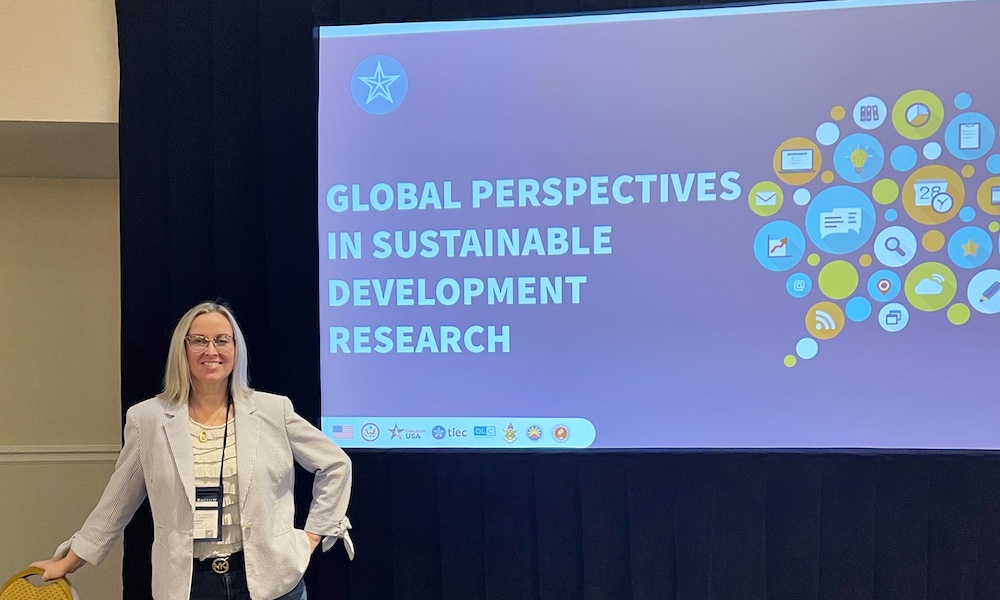Through two well-timed partnerships with the Texas International Education Consortium, universities in Ghana and the Philippines weren’t slowed down by COVID-19. Soon after the pandemic closed down physical institutions of higher education, TIEC and our partners were preparing faculty to embrace the online modality with humanity, excellence, and measurable student learning outcomes.
On Wednesday, April 19th, TIEC’s Dr. Heather Farmakis presented outcomes from those programs and more at the Online Learning Consortium (OLC) Innovate 2023 Research Summit in Nashville. Her session, “Global Perspectives in Sustainable Development Research,” shared how a unique collaboration — tapping into TIEC’s global network and OLC’s industry-leading standards for online learning — paired to offer Ghana and the Philippines higher education institutions an enormous step forward in their respective quests to become Centers of Excellence for online instruction.
This successful partnership cultivated sustainability at multiple levels: individual, institutional, and social. The projects, and the correlating research conducted in support of them, revealed the successes of flexible learning modalities to re-engage students at risk for attrition. The reimagined educational models included higher-order thinking and flexible learning that will better prepare students for the global workforce.
As determined by our research, online instruction provides students with greater access to higher education, as they can take classes from anywhere in the world. This is especially beneficial for students who have limited access to traditional educational institutions due to geographical or financial constraints. Online instruction allows flexibility such that students can work remotely and on their own schedules, easing the balance between studies and other commitments.
While we know successes abound, and many initiatives are in place to promote online learning, it’s not yet fully adopted globally. Reliable internet and supportive infrastructure remain weak in places where online learning is perhaps most needed. Without policies to address connectivity and bandwidth, online learning will not reach its full potential. Unfortunately, that could also be the outcome for far too many hardworking students who would most benefit from a flexible, accessible model.
With that in mind, TIEC is still working to provide flexible, accessible solutions to our partners around the world. Now, with more capacity for delivery and greater comfort among faculty to interact in a virtual environment, TIEC is increasing our support for virtual exchange, also known as COIL, through our Virtual Exchange Academy and our newly-launched Texas International Education Fund COIL grants. Virtual exchange is a way of connecting students and faculty from different countries and cultures through technology. Through virtual exchange, instructors and learners are not dependent on funds, passports and visas to learn about other cultures, to share ideas, or to collaborate on projects. This platform-agnostic collaborative learning experience will prepare your students to successfully compete for global careers. If you’re interested in learning more about the presentation and TIEC’s Virtual Exchange Academy, please contact us at info@tiec.org.

